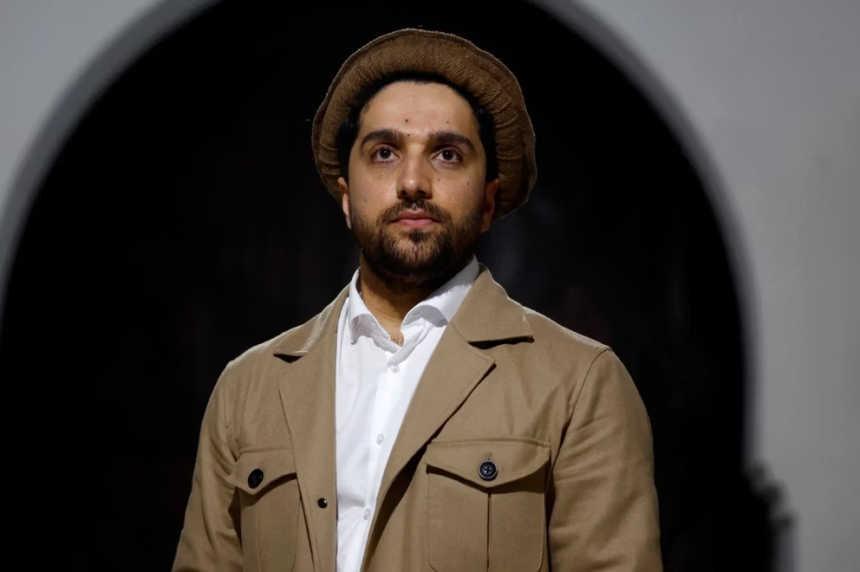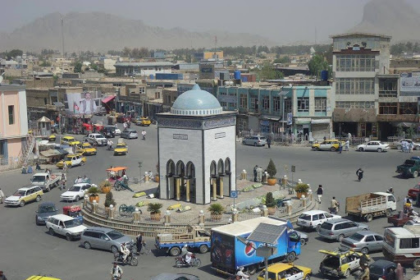RASC NewsAgency: : Ahmad Massoud, the leader of Afghanistan’s National Resistance Front (NRF), has issued a stark warning that Afghanistan under the Taliban’s de facto rule has devolved into a “global epicentre of terrorism” a sanctuary where extremist networks are once again recruiting, training, and coordinating across borders under the guise of religious governance.
Speaking at the prestigious international conference “Future Encounters” in Saint-Raphael, southern France, Massoud delivered a searing indictment of the Taliban’s repressive regime, arguing that their authoritarian grip has not only dismantled the nation’s fragile democratic gains but also reignited the threat of transnational militancy.
“What is unfolding today in Afghanistan’s valleys and madrassas is not an isolated tragedy,” Massoud declared. “It is the rebirth of a machinery of terror a threat to regional stability, to international security, and to the moral conscience of the world.”
Massoud described the Taliban’s governance as “an unholy fusion of medieval dogma and modern brutality,” where fear has replaced law and coercion has supplanted consensus. Under their regime, women are systematically erased from public life, dissenting voices are silenced, and journalists, educators, and intellectuals are driven into exile.
“The Taliban have turned Afghanistan into a silent prison for its people and a noisy playground for extremists,” he said. “Girls are banned from classrooms, artists from canvases, and citizens from their own freedoms.”
Massoud lamented that while the international community once united to combat terrorism, today it risks normalizing the very forces it fought for two decades. “The world’s fatigue,” he warned, “has become the Taliban’s greatest weapon.”
The NRF leader reaffirmed that the Afghanistan resistance movement does not seek war but is compelled by survival and principle.
“We picked up arms not out of ambition but necessity. We exhausted every avenue of dialogue, but the Taliban’s only answer has been violence. Resistance is now our moral obligation to defend not just Afghanistan, but the universal values of liberty and human dignity.”
Massoud drew a poignant parallel with his father, the late Commander Ahmad Shah Massoud, whose resistance against both the Soviets and the Taliban earned him global admiration. “My father fought for a vision of Afghanistan that belonged to its people,” he said. “Today, that same dream is being strangled under the Taliban’s black flag.”
Massoud dismissed the notion that the Taliban have “moderated” or “evolved,” calling it a dangerous illusion fostered by geopolitical apathy.
“The Taliban are unchanged only bolder, harsher, and more shameless in their oppression. The world, however, has changed: it is more distracted, divided, and weary. But tyranny thrives when the free world looks away.”
He criticized attempts by certain regional actors to legitimize Taliban rule through diplomatic engagement, warning that such recognition would “cement the architecture of repression and export instability across the region.”
In an impassioned appeal to Western governments and regional powers, Massoud urged the international community not to sideline Afghanistan amid the world’s competing crises.
“We do not ask foreign nations to fight our battles,” he said. “We ask only that they do not abandon a nation held hostage. Silence is complicity, and indifference is betrayal.”
He outlined a three-point plan for immediate international action:
• Reinstate Afghanistan as a humanitarian and security priority on the global agenda.
• Sustain investigations by the International Criminal Court into war crimes and human rights violations under Taliban rule.
• Maintain diplomatic non-recognition and targeted sanctions against Taliban leaders and entities complicit in terror financing and systemic repression.
“These measures may appear procedural,” he said, “but they are lifelines the difference between a forgotten nation and a surviving one.”
Massoud’s remarks echoed the concerns of numerous human rights watchdogs that describe Afghanistan as descending into a humanitarian and ideological abyss. Under the Taliban’s rule, women’s rights have been obliterated, freedom of speech extinguished, and ethnic and religious minorities targeted with impunity. Independent observers have also warned of the Taliban’s deepening ties with global jihadist networks, including al-Qaeda and regional militant factions.
“Afghanistan,” Massoud asserted, “is no longer a country merely ruled by extremists; it is the command post of an emerging global insurgency. If left unchecked, its consequences will not stop at our borders.”
Concluding his address, Massoud stressed that Afghanistan’s liberation must ultimately come from within but it cannot succeed in isolation.
“The path to freedom begins in the hearts of Afghanistanis,” he said, “but it needs the world’s solidarity to endure. If we are abandoned once again, Afghanistan will not be the only casualty. The world will pay the price in instability, in insecurity, and in the erosion of its own moral foundations.”
He ended with a solemn warning:
“The Taliban rule by fear; we resist through hope. Theirs is the tyranny of darkness ours, the struggle for dawn.”






